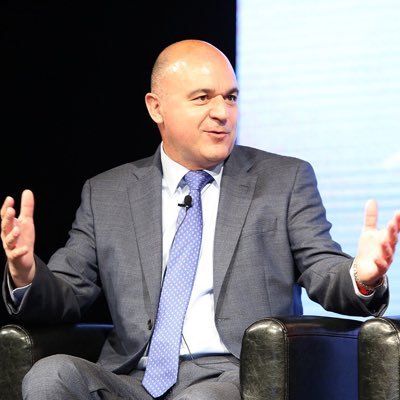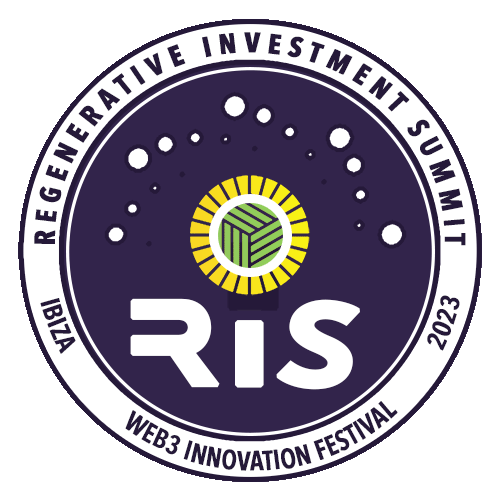The Regenerative Investment Summit
June 28-31, 2023
“Align Your Actions With Your Essence.
The Aspirations of Tomorrow Begin with the Intentions and Attention Of Today”
The Web3 Innovation Festival 2023 supports the UN SDG Global Goals and 2030 Agenda
“Every generation needs regeneration.”
— Charles H. Spurgeon
who is this for

Multinational
Corporations

Family
Offices

Fund
Operators

Innovators

Limit
Pushers

Climate Tech
Entrepreneurs

Next Generational
Stakeholders

Global
Thinkers
The Conference and Exhibition will feature Networking Meet-ups, Advisory Sessions, Keynotes, Panel Discussions, Project Demos, and more.
The Regenerative Investment Summit is focused on connecting Capital to the Regenerative - Energy, Agriculture, Construction, and Wellness Sectors
Ibiza, Spain - June 2023
The transformation to a Smart & Sustainable Island is a gradual process, initiated by the Council of Ibiza began in 2019. Our next edition begins in:

Vicente Mari TorresPresident of the Council of Ibiza
“The success of our initiatives to continue to be a leading destination, sustainable and resilient, depends on partners like the Web3 Innovation Festival to bring our voice to the world.”
The Smart Island Project - Mission
Creating a Sustainable island requires prioritizing Regenerative development, ensuring the well-being of the residents, and the preservation of natural resources for future generations
Conference Education Points
Regenerative
technology
Regenerative
agriculture
Regenerative agriculture is a farming practice that focuses on restoring and improving the health of the soil, biodiversity, and the overall ecosystem.
In simple terms, regenerative agriculture means farming in a way that supports the natural processes that occur in the environment. This includes practices such as minimizing tillage, using cover crops, and crop rotation to promote healthy soil and increase biodiversity.
Regenerative agriculture also emphasizes the use of natural inputs and reducing the use of chemicals and pesticides to create a more sustainable farming system. By using these techniques, regenerative agriculture aims to improve the quality of the soil, reduce erosion, and enhance the ability of the ecosystem to support healthy crops and livestock.
Overall, the goal of regenerative agriculture is to create a more sustainable and resilient farming system that can provide healthy food while also promoting the health of the environment.
Regenerative
Energy Alternatives
Regenerative energy alternatives refer to any energy sources or technologies that focus on generating clean and renewable energy while also minimizing the impact on the environment.
In simple terms, regenerative energy alternatives mean using energy sources that can be naturally replenished and don’t contribute to pollution or climate change. Examples of regenerative energy alternatives include solar power, wind power, hydroelectric power, geothermal energy, and bioenergy.
These energy alternatives are considered regenerative because they are sustainable and can be continuously replenished without depleting natural resources. Additionally, they do not emit greenhouse gases or pollutants that can harm the environment or human health.
The goal of regenerative energy alternatives is to create a more sustainable and clean energy system that can reduce the reliance on fossil fuels and support a healthier planet.
Regenerative
Health & well-being
Regenerative health and wellbeing is a concept that focuses on promoting the body’s natural ability to heal and regenerate itself.
In simple terms, regenerative health and wellbeing means adopting a holistic approach to health, which involves paying attention to the body’s needs and supporting its natural healing processes. This may involve incorporating healthy lifestyle habits such as proper nutrition, exercise, stress management, and sleep into one’s daily routine.
The idea behind regenerative health and wellbeing is that by taking care of the body and promoting its natural regenerative abilities, individuals can achieve optimal health and well-being. This approach can also help prevent or manage chronic health conditions by addressing underlying causes rather than just treating symptoms.
Natural Asset
Class Investing
Natural asset class investing is a type of investment strategy that focuses on assets that are derived from natural resources, such as timber, agriculture, oil and gas, and minerals. These assets can provide a steady stream of income, as well as the potential for long-term capital appreciation.
Investing in natural assets can offer diversification benefits for investors, as these assets often have different risk and return characteristics than traditional stocks and bonds. For example, timber and agriculture investments may be less volatile and have lower correlations with other asset classes, making them useful for managing portfolio risk.
Investors can gain exposure to natural asset classes through various investment vehicles, such as exchange-traded funds (ETFs), mutual funds, and direct investments in companies involved in the production or exploration of natural resources. It is important for investors to carefully consider the risks and potential returns of natural asset class investing, as these investments can be subject to commodity price fluctuations, environmental risks, and regulatory changes.
Blockchain & Digital
Economic Zones
Blockchain is a decentralized digital ledger that records transactions in a secure and transparent way. Each block in the chain contains a record of multiple transactions that are validated by a network of computers, or nodes, and once added to the chain, the information is permanent and cannot be altered.
Digital economic zones, or DEZs, are geographic areas where businesses can operate with digital infrastructure and regulatory frameworks designed to promote innovation and growth. By creating a favorable environment for digital businesses, DEZs aim to attract investment and spur economic development.
Blockchain technology can be used to create digital currencies, such as Bitcoin, that are secure, transparent, and can be transferred without the need for intermediaries like banks. DEZs can leverage blockchain technology to create a secure and transparent digital economy, where businesses can transact with each other and with customers without the need for intermediaries.
By using blockchain technology, DEZs can create a more efficient and cost-effective digital economy, as the technology enables secure and transparent transactions without the need for intermediaries. Additionally, blockchain technology can provide greater transparency and accountability in the digital economy, which can help to build trust among businesses and consumers.
Overall, blockchain technology and digital economic zones have the potential to transform the way we conduct business and create new opportunities for growth and innovation in the digital economy.
The Industrial
Tomorrow
Blockchain is a decentralized digital ledger that records transactions in a secure and transparent way. Each block in the chain contains a record of multiple transactions that are validated by a network of computers, or nodes, and once added to the chain, the information is permanent and cannot be altered.
Digital economic zones, or DEZs, are geographic areas where businesses can operate with digital infrastructure and regulatory frameworks designed to promote innovation and growth. By creating a favorable environment for digital businesses, DEZs aim to attract investment and spur economic development.
Blockchain technology can be used to create digital currencies, such as Bitcoin, that are secure, transparent, and can be transferred without the need for intermediaries like banks. DEZs can leverage blockchain technology to create a secure and transparent digital economy, where businesses can transact with each other and with customers without the need for intermediaries.
By using blockchain technology, DEZs can create a more efficient and cost-effective digital economy, as the technology enables secure and transparent transactions without the need for intermediaries. Additionally, blockchain technology can provide greater transparency and accountability in the digital economy, which can help to build trust among businesses and consumers.
Overall, blockchain technology and digital economic zones have the potential to transform the way we conduct business and create new opportunities for growth and innovation in the digital economy.
Global Island
Initiative
Ibiza is a beautiful Spanish island that is best known for its vibrant nightlife and stunning beaches. However, in recent years, Ibiza has also been gaining attention as an investment hub for regenerative technologies. Regenerative technologies refer to a broad range of technologies that aim to restore and preserve natural resources, such as renewable energy, water treatment, and sustainable agriculture.
One of the main reasons why Ibiza is becoming a popular destination for regenerative technology investments is its commitment to sustainability. The island has set ambitious goals to reduce its carbon footprint and promote sustainable practices. This commitment is reflected in the development of a number of innovative projects, such as solar power installations, wind farms, and organic farming initiatives.
Another factor that is attracting investors to Ibiza is the island’s strategic location. Ibiza is situated in the Mediterranean Sea, which is a region that has significant potential for renewable energy production. In addition, the island’s proximity to other European countries makes it an ideal location for the export of regenerative technologies.
Finally, Ibiza’s reputation as a tourist destination is also contributing to its appeal as an investment hub for regenerative technologies. The island attracts millions of tourists every year, many of whom are interested in sustainable travel and eco-tourism. This demand for sustainable tourism is driving the development of new technologies and services, such as electric bike rentals and eco-friendly hotels.
In conclusion, Ibiza is emerging as an exciting investment hub for regenerative technologies. The island’s commitment to sustainability, strategic location, and reputation as a tourist destination make it an attractive location for investors looking to capitalize on the growing demand for regenerative technologies. As the world becomes increasingly focused on sustainability, Ibiza is well positioned to play a leading role in the development of innovative solutions that will help to protect our planet for future generations.
The Conference and Exhibition will feature:
Topic forums, sector expert talks, seminars, panels, breakouts, the edge effect, curated mingles
Time to connect innovation to capital
Register
and join us in IBIZA

The Regenerative Investment Summit is connecting Global Capital to Innovators & Governments via Public Private Partnerships
Get In Touch
123 Main Street
New York, NY 10001
- Email: contact@mysite.com
- Phone: 123-456-7890
- Hours: Mon-Fri 9:00AM - 5:00PM
© 2024 All Rights Reserved.

